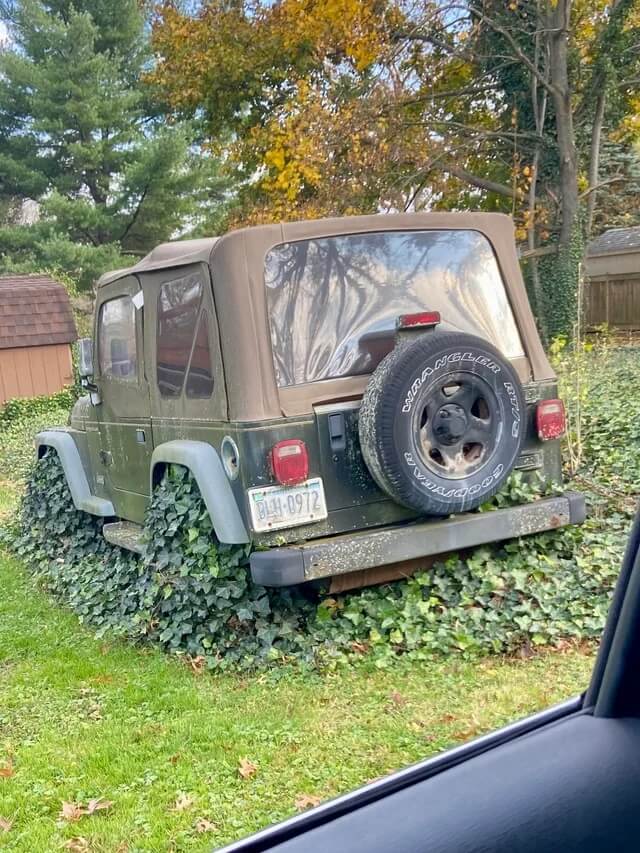Invasive species have been making headlines recently — you may have been told to squash the spotted lanternfly. Unfortunately, invasive species are quite common and outcompete native organisms, wreaking havoc on local ecosystems.
A recent Reddit post showcases how aggressive invasives can be.
One homeowner shared a photo that could be from a dystopian movie. The picture shows an old Jeep that has started to be consumed by English ivy. The ivy has grown under the car and up all four wheels, covering them completely.
The photo's caption reads, "It will grow on anything!!" English Ivy is a very aggressive plant and will grow on and over just about everything. If you think of an image of a building covered in vines, it's typically English ivy that you are picturing. This plant can grow thickly up the sides of buildings, and when removed, it comes off in big, oddly satisfying swathes.

In our global and interconnected world, invasive species have more chances to spread and take over. Most of the time, these non-native organisms are brought over by mistake in the hull of a ship or on boots or clothing. Invasive species are such a problem due to their mismatch with local ecosystems — they will have few, if any, predators and often be able to outcompete other species. Competition like this can lead to declines in populations of native species and sometimes even extinction.
Invasives are one of the drivers of the global loss of biodiversity. According to the London School of Economics and Political Science, "Globally, at least 1.2 million plant and animal species are estimated to be under threat of extinction, many of them before 2100."
While it may seem small when facing such big scary numbers, even the simple act of removing invasive English ivy can help local biodiversity. Managing the biodiversity of your garden can be important for wildlife. As one study showed, "South African suburban gardens have been [colonized] by the endangered Knysna warbler (Bradypterus sylvaticus) as their vegetation structure mimics that of the disappearing woodland glades of its natural habitat."
The comments were mostly full of jokes, with one person saying, "I think you might be in Jurassic Park."
Someone else quipped, "English Ivy will be here long after humans."
Join our free newsletter for easy tips to save more, waste less, and help yourself while helping the planet.









